- Reduced Absorption: High caffeine levels can interfere with the absorption of certain minerals, including calcium, further contributing to an electrolyte imbalance.
The Science Behind Caffeine and Muscle Cramps
Muscle cramps are involuntary, often painful contractions in various muscle groups. These sudden spasms, which can last from a few seconds to several minutes, are commonly experienced by individuals across different age groups. They can be triggered by numerous factors, ranging from physical exertion and dehydration to mineral deficiency and certain medical conditions.
The relationship between caffeine and muscle cramps is a subject of ongoing scientific debate.
Still, caffeine’s role as a central nervous system stimulant can directly and indirectly affect muscles.
Here’s an overview:
- Neuromuscular Activity: Caffeine stimulates the central nervous system, potentially increasing neuromuscular excitability. This means the muscles are more easily activated, which might sometimes lead to cramping.
- Blood Flow and Muscle Oxygenation: Evidence suggests that caffeine can influence blood flow to the muscles, affecting muscle oxygenation and the likelihood of cramping.
- Electrolyte Balance: Caffeine has diuretic properties, which could lead to dehydration and electrolyte imbalances if consumed in large quantities. This imbalance can be a factor in muscle cramp development.
- Muscle Fatigue: While caffeine enhances physical performance, it could also lead to muscle overuse or fatigue in some scenarios, particularly if physical activity is prolonged, increasing the risk of cramps.
Genetic makeup, caffeine tolerance, and overall health status determine how one’s body reacts to caffeine.
So, while some people may experience cramps due to caffeine consumption, others might not notice any adverse effects.
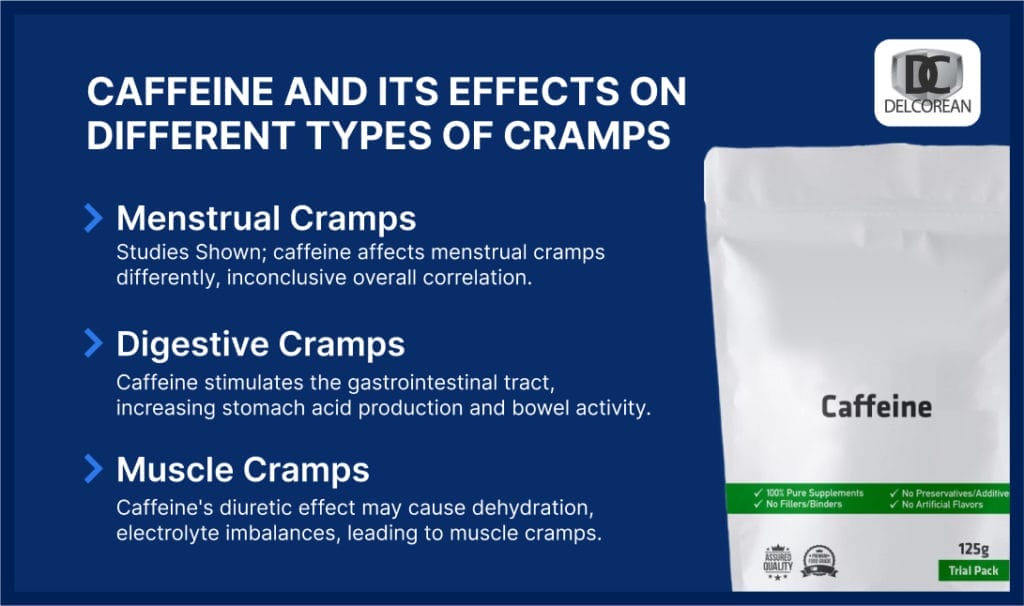
Caffeine and Its Effects on Different Types of Cramps
Caffeine’s impact on the body extends beyond the commonly discussed alertness and energy boost. Its influence on different types of cramps – menstrual, digestive, and muscle – is a topic of interest and research in the medical community.
Understanding how caffeine interacts with these various forms of cramps can provide valuable insights for managing and potentially alleviating these conditions.
Menstrual Cramps
- Physiological Impact: Menstrual cramps, or dysmenorrhea, are influenced by prostaglandins, hormone-like substances involved in pain and inflammation. Caffeine, known to constrict blood vessels and increase tension, might exacerbate menstrual cramps in some women.
- Research Findings: Studies have shown mixed results; some indicate caffeine can worsen menstrual cramps, while others find no significant correlation. This suggests that individual responses to caffeine during menstruation can vary greatly.
Digestive Cramps
- Gastrointestinal Effects: Caffeine stimulates the gastrointestinal tract, increasing stomach acid production and bowel activity. For some individuals, this can lead to digestive discomfort or cramps.
- Individual Sensitivity: People with certain gastrointestinal conditions, such as irritable bowel syndrome (IBS) or acid reflux, might find that caffeine exacerbates their symptoms, including cramping.
Muscle Cramps
- Caffeine and Muscle Excitability: As a stimulant, caffeine can increase neuromuscular excitability, potentially leading to muscle cramps, especially in individuals who are sensitive to its effects or consume it in large quantities.
- Hydration and Electrolyte Balance: The diuretic effect of caffeine can contribute to dehydration and electrolyte imbalances, which are known factors in the development of muscle cramps. However, this is typically a concern only with high intake levels.
Caffeine-Induced Muscle Twitching
According to Healthline, consuming too much caffeine can indeed lead to muscle twitching. This is because caffeine stimulates the nervous system, which can lead to involuntary muscle contractions or twitches.
These twitches are most common in the eyelids, calves, and hands but can also occur in other muscle groups.
Muscle Cramps vs. Muscle Twitching
While muscle cramps and twitching involve involuntary muscle contractions, they are not the same.
Muscle cramps are sudden, involuntary, and often painful contractions of a muscle or group of muscles. They can last from a few seconds to several minutes. Cramps are often caused by muscle fatigue, dehydration, or electrolyte imbalances.
Muscle twitching, also known as muscle fasciculation, is a small, involuntary contraction inside the muscle. They are often visible under the skin and may feel like a slight tickle or a popping sensation. Twitches are usually not painful and are often caused by stress, anxiety, or excessive caffeine intake.
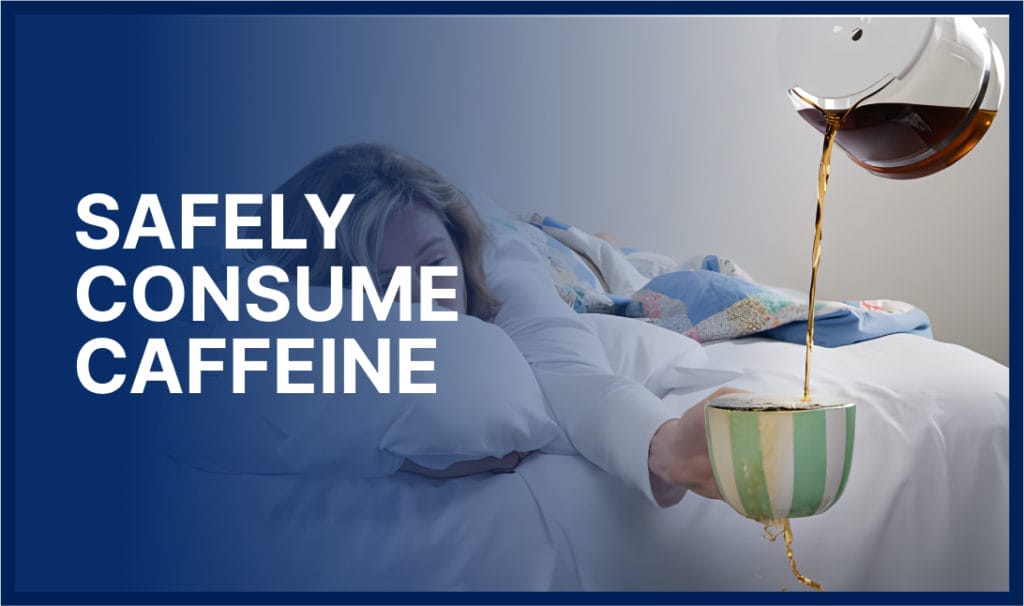
Practical Tips to Prevent Caffeine-Induced Muscle Cramps
Observe these tips to help you enjoy your caffeine or energy drink without the unwanted side effects:
1. Moderation is Key
As with many things in life, moderation is key when it comes to caffeine. Limit your caffeine intake to a level your body is comfortable with. This amount can vary from person to person, so it’s important to listen to your body and adjust your consumption accordingly.
2. Stay Hydrated
Given caffeine’s diuretic properties, it’s crucial to stay well-hydrated. So, drink plenty of water throughout the day, especially if you’re consuming caffeinated beverages.
3. Maintain a Balanced Diet
A balanced diet can help ensure your body has the necessary electrolytes for proper muscle function. Foods rich in potassium, calcium, and magnesium can help maintain electrolyte balance and prevent muscle cramps.
4. Use a Muscle Relaxant
Consider using a muscle relaxant, like Cramp911, If you’re prone to muscle cramps. This product, offered by Delcorean, has been reported to relieve a muscle cramp in as little as 15 seconds after application.
In addition to being safe for most people and can be applied directly to the muscle cramp or spasm zone, here are reasons why Cramp911 could be a game-changer for you:
- Effective: Cramp911 has been reported to relieve leg cramps, back and neck spasms, and hand, foot, and toe cramps. It’s also been reported to be useful for muscle cramps caused by medications and for muscle soreness and injury.
- Duration: For many people, one treatment with Cramp911 will last up to eight hours or longer.
- Safety: Cramp911 is safe for most people. However, pregnant or nursing women, children under the age of 12, and people with certain health conditions should consult a physician before use.
Take Control of Your Caffeine Intake for a Cramp-Free Lifestyle
As we’ve unraveled the complexities of the question, “Does caffeine cause cramps?” it’s become clear that the relationship between caffeine and muscle discomfort is nuanced and varies from person to person. Our products offer a promising solution for those who enjoy their daily caffeine but are concerned about cramps.
With Delcorean, you can enjoy your caffeine with peace of mind, knowing you have a trusted ally in managing muscle cramps.
Navigating the complex world of dietary impacts on our health, many wonder, “Does caffeine cause cramps?”
Discover the truths behind caffeine’s effects on your body and gain valuable knowledge to make informed decisions about caffeine consumption.
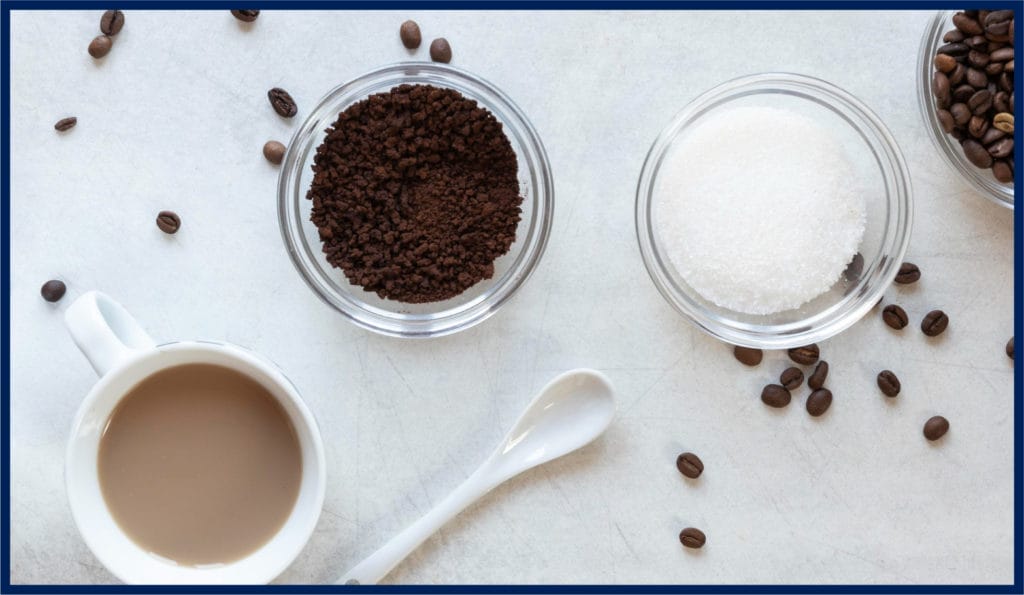
What is Caffeine?
Caffeine is a natural stimulant and the world’s most widely consumed psychoactive substance that’s not regulated or classified as a drug.
When you consume any of these, caffeine is responsible for giving you that familiar energy boost:
- Coffee: The most popular source, with its content varying depending on the type and brewing method.
- Tea: Contains caffeine, but usually in lower amounts compared to coffee. Green, black, and white teas all have varying levels.
- Soft Drinks and Energy Drinks: Many of these beverages are infused with caffeine for its stimulating effects.
- Cacao Beans: The basis for chocolate products containing small amounts of caffeine.
- Certain Medications: Some over-the-counter and prescription drugs include caffeine for its ability to enhance pain relief.
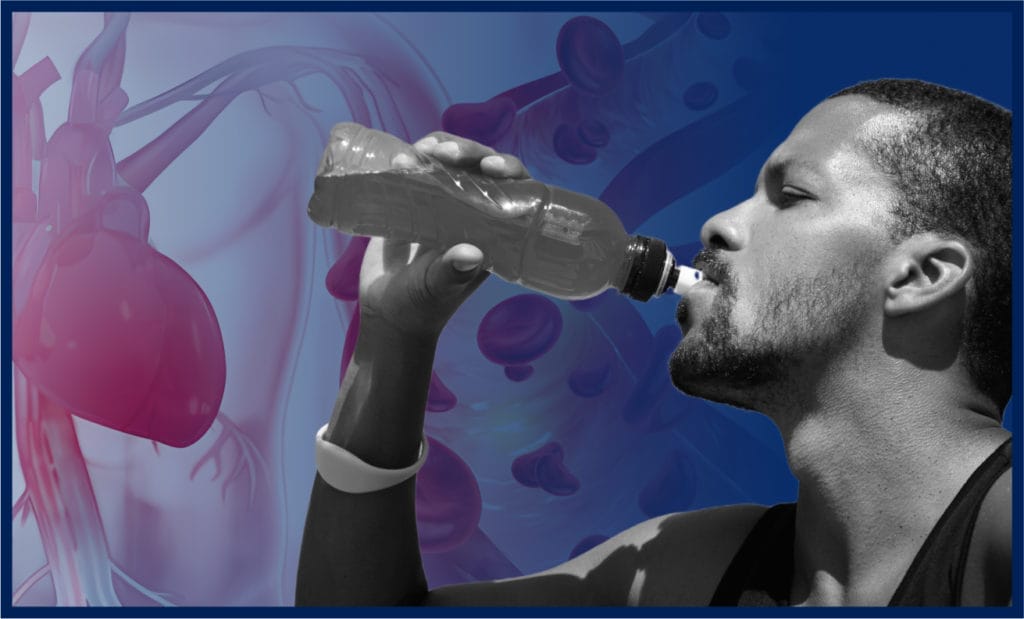
How Caffeine Affects the Body
Upon entering the body, caffeine primarily acts on the central nervous system. It blocks the action of a neurotransmitter called adenosine, which usually promotes sleep and relaxation.
By inhibiting adenosine, caffeine provides the following:
- Mental Alertness: Caffeine’s most noticeable effect is increased alertness and reduced fatigue, which is why it’s a common ingredient in products designed to help you stay awake.
- Physical Performance: It can also enhance physical performance by mobilizing fatty acids from fat tissues and increasing adrenaline levels in the blood.
- Metabolism: Caffeine has been shown to boost metabolic rate and increase fat burning in the short term, although these effects may diminish in long-term coffee drinkers.
- Brain Function: Some studies suggest that caffeine may protect against neurodegenerative diseases like Alzheimer’s and Parkinson’s, though more research is needed in this area.⠀
While caffeine is generally considered safe for most people when consumed in moderation, its effects can vary based on individual sensitivity, the amount consumed, and the frequency of consumption.
Understanding how caffeine works and its sources can help you make informed choices about its role in your diet and lifestyle.
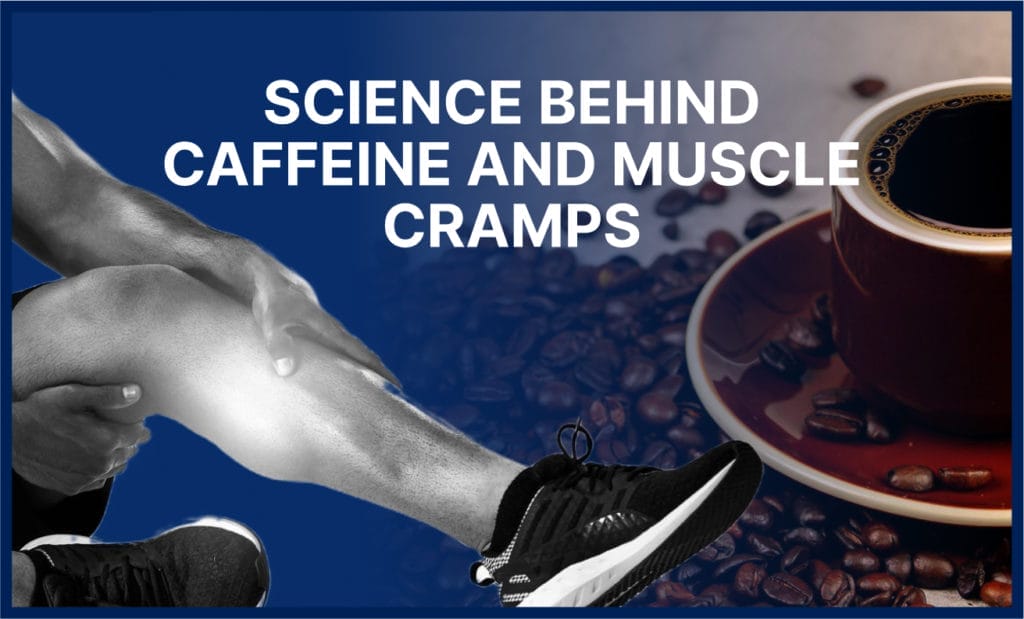
The Connection Between Caffeine and Muscle Cramps
Caffeine, while being a beloved stimulant for many, does come with its set of potential drawbacks.
One of the lesser-known side effects of excessive caffeine consumption is muscle cramps.
How does this connection work?
Caffeine and Dehydration
One of the primary ways caffeine can lead to muscle cramps is through dehydration. Here’s the breakdown:
- Diuretic Effect: Caffeine increases urine production, acting as a diuretic. While moderate caffeine consumption might not lead to dehydration, excessive intake can result in a significant loss of fluids.
- Loss of Fluids: As you lose more fluids, your muscles may not get the necessary hydration to function correctly. Dehydrated muscles are more prone to cramping.
- Reduced Blood Volume: Dehydration can also lead to reduced blood volume, which means less oxygen and nutrients are delivered to the muscles, making them more susceptible to cramping.
Electrolyte Imbalance
Electrolytes play a crucial role in muscle function. An imbalance, often exacerbated by dehydration, can lead to muscle cramps.
Caffeine’s role in this is twofold:
- Increased Urination: The diuretic effect of caffeine not only removes fluids but also essential electrolytes like sodium, potassium, and calcium. These electrolytes are vital for muscle function and nerve conduction.
- Reduced Absorption: High caffeine levels can interfere with the absorption of certain minerals, including calcium, further contributing to an electrolyte imbalance.
The Science Behind Caffeine and Muscle Cramps
Muscle cramps are involuntary, often painful contractions in various muscle groups. These sudden spasms, which can last from a few seconds to several minutes, are commonly experienced by individuals across different age groups. They can be triggered by numerous factors, ranging from physical exertion and dehydration to mineral deficiency and certain medical conditions.
The relationship between caffeine and muscle cramps is a subject of ongoing scientific debate.
Still, caffeine’s role as a central nervous system stimulant can directly and indirectly affect muscles.
Here’s an overview:
- Neuromuscular Activity: Caffeine stimulates the central nervous system, potentially increasing neuromuscular excitability. This means the muscles are more easily activated, which might sometimes lead to cramping.
- Blood Flow and Muscle Oxygenation: Evidence suggests that caffeine can influence blood flow to the muscles, affecting muscle oxygenation and the likelihood of cramping.
- Electrolyte Balance: Caffeine has diuretic properties, which could lead to dehydration and electrolyte imbalances if consumed in large quantities. This imbalance can be a factor in muscle cramp development.
- Muscle Fatigue: While caffeine enhances physical performance, it could also lead to muscle overuse or fatigue in some scenarios, particularly if physical activity is prolonged, increasing the risk of cramps.
Genetic makeup, caffeine tolerance, and overall health status determine how one’s body reacts to caffeine.
So, while some people may experience cramps due to caffeine consumption, others might not notice any adverse effects.

Caffeine and Its Effects on Different Types of Cramps
Caffeine’s impact on the body extends beyond the commonly discussed alertness and energy boost. Its influence on different types of cramps – menstrual, digestive, and muscle – is a topic of interest and research in the medical community.
Understanding how caffeine interacts with these various forms of cramps can provide valuable insights for managing and potentially alleviating these conditions.
Menstrual Cramps
- Physiological Impact: Menstrual cramps, or dysmenorrhea, are influenced by prostaglandins, hormone-like substances involved in pain and inflammation. Caffeine, known to constrict blood vessels and increase tension, might exacerbate menstrual cramps in some women.
- Research Findings: Studies have shown mixed results; some indicate caffeine can worsen menstrual cramps, while others find no significant correlation. This suggests that individual responses to caffeine during menstruation can vary greatly.
Digestive Cramps
- Gastrointestinal Effects: Caffeine stimulates the gastrointestinal tract, increasing stomach acid production and bowel activity. For some individuals, this can lead to digestive discomfort or cramps.
- Individual Sensitivity: People with certain gastrointestinal conditions, such as irritable bowel syndrome (IBS) or acid reflux, might find that caffeine exacerbates their symptoms, including cramping.
Muscle Cramps
- Caffeine and Muscle Excitability: As a stimulant, caffeine can increase neuromuscular excitability, potentially leading to muscle cramps, especially in individuals who are sensitive to its effects or consume it in large quantities.
- Hydration and Electrolyte Balance: The diuretic effect of caffeine can contribute to dehydration and electrolyte imbalances, which are known factors in the development of muscle cramps. However, this is typically a concern only with high intake levels.
Caffeine-Induced Muscle Twitching
According to Healthline, consuming too much caffeine can indeed lead to muscle twitching. This is because caffeine stimulates the nervous system, which can lead to involuntary muscle contractions or twitches.
These twitches are most common in the eyelids, calves, and hands but can also occur in other muscle groups.
Muscle Cramps vs. Muscle Twitching
While muscle cramps and twitching involve involuntary muscle contractions, they are not the same.
Muscle cramps are sudden, involuntary, and often painful contractions of a muscle or group of muscles. They can last from a few seconds to several minutes. Cramps are often caused by muscle fatigue, dehydration, or electrolyte imbalances.
Muscle twitching, also known as muscle fasciculation, is a small, involuntary contraction inside the muscle. They are often visible under the skin and may feel like a slight tickle or a popping sensation. Twitches are usually not painful and are often caused by stress, anxiety, or excessive caffeine intake.

Practical Tips to Prevent Caffeine-Induced Muscle Cramps
Observe these tips to help you enjoy your caffeine or energy drink without the unwanted side effects:
1. Moderation is Key
As with many things in life, moderation is key when it comes to caffeine. Limit your caffeine intake to a level your body is comfortable with. This amount can vary from person to person, so it’s important to listen to your body and adjust your consumption accordingly.
2. Stay Hydrated
Given caffeine’s diuretic properties, it’s crucial to stay well-hydrated. So, drink plenty of water throughout the day, especially if you’re consuming caffeinated beverages.
3. Maintain a Balanced Diet
A balanced diet can help ensure your body has the necessary electrolytes for proper muscle function. Foods rich in potassium, calcium, and magnesium can help maintain electrolyte balance and prevent muscle cramps.
4. Use a Muscle Relaxant
Consider using a muscle relaxant, like Cramp911, If you’re prone to muscle cramps. This product, offered by Delcorean, has been reported to relieve a muscle cramp in as little as 15 seconds after application.
In addition to being safe for most people and can be applied directly to the muscle cramp or spasm zone, here are reasons why Cramp911 could be a game-changer for you:
- Effective: Cramp911 has been reported to relieve leg cramps, back and neck spasms, and hand, foot, and toe cramps. It’s also been reported to be useful for muscle cramps caused by medications and for muscle soreness and injury.
- Duration: For many people, one treatment with Cramp911 will last up to eight hours or longer.
- Safety: Cramp911 is safe for most people. However, pregnant or nursing women, children under the age of 12, and people with certain health conditions should consult a physician before use.
Take Control of Your Caffeine Intake for a Cramp-Free Lifestyle
As we’ve unraveled the complexities of the question, “Does caffeine cause cramps?” it’s become clear that the relationship between caffeine and muscle discomfort is nuanced and varies from person to person. Our products offer a promising solution for those who enjoy their daily caffeine but are concerned about cramps.
With Delcorean, you can enjoy your caffeine with peace of mind, knowing you have a trusted ally in managing muscle cramps.


